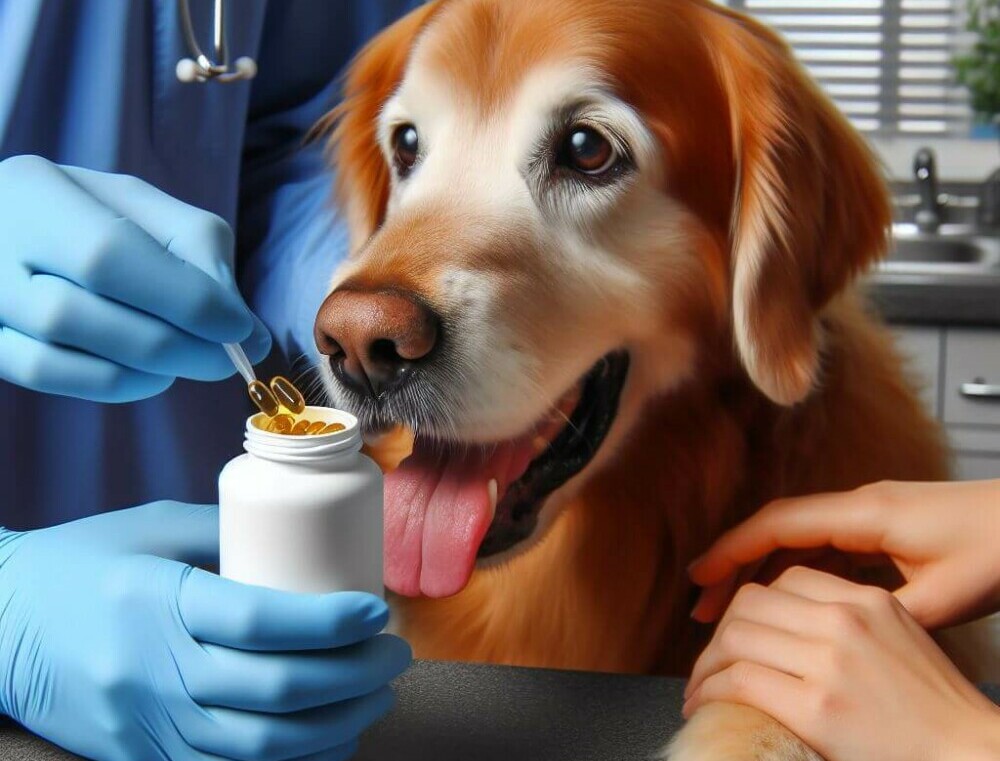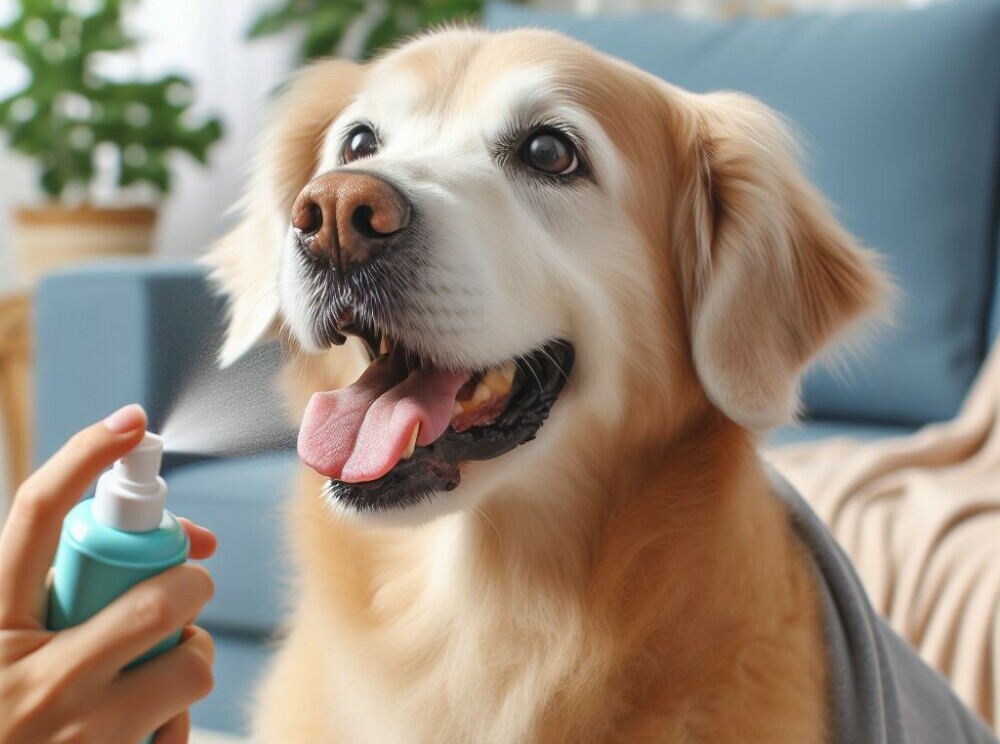If you’ve ever watched a loved one struggle with allergies, you know how tricky they can be to manage. Now, imagine that loved one is your senior dog, often unable to tell you what’s making them so miserable. Allergies in older dogs are not just a source of discomfort for them but can be a challenge for pet owners as well.
Allergies occur when a dog’s immune system overly reacts to something harmless, whether it’s pollen, dust, mold, or even an ingredient in their food. These responses can range from mild irritations to severe health concerns that impact their quality of life.
Speaking from personal experience, my lab Rio started scratching more than usual when he was around 6-7 years old. Initially, it was just during the summer, his skin became red, and it was evident he was in distress. Eventually, we learned it was seasonal allergies and the veterinarian prescribed corticosteroids to manage his symptoms.
However, Rio’s troubles didn’t stop with the change of seasons. He developed pododermatitis, an inflammation on his front paws, which would get better and then worsen without any permanent solution despite various treatments with Corti balsams and creams. Such conditions highlight the unpredictable course of allergies and the constant need for vigilance with senior pets.
And it’s not just Rio. Similar stories are echoed by pet owners worldwide dealing with their aging dogs. We try to tailor our environment and their diet, like opting for hypoallergenic food, to ease their discomfort. It’s a continuous journey of observation, care, and medical consultations to ensure our furry friends remain as happy and healthy as they can be.

Identifying Allergies in Older Canines
Spotting the signs of allergies in senior dogs is critical for their comfort and well-being. Just like my old buddy Rio, who started showing symptoms around the age of 6-7, many dogs develop allergic reactions later in life. You’re going to find out about the common indicators that your aging dog might be dealing with allergies.
The symptoms can range from mild to severe and typically include persistent itching, redness of the skin, and frequent ear infections. Some canines exhibit respiratory issues or gastrointestinal upsets, indicating a possible allergic reaction. Paying close attention to these changes, especially in the summer when symptoms can worsen, is essential.
Veterinary diagnosis is indispensable because, let’s face it, we’re not mind-readers. A professional will examine your pet, consider the symptoms, and might recommend allergy testing. Treatment options such as antihistamines, immunotherapy, and yes, in cases like Rio’s, corticosteroids are prescribed for relief.
Rio’s summers transformed when we understood and started tackling his allergies. It was no picnic seeing him itch and develop red patches. With the help of our vet, we started a routine that included timely medication. His flare-ups became manageable, though the journey to finding the right balance was far from straightforward.
Challenges in Treating Chronic Conditions Like Pododermatitis
When it comes to managing chronic conditions in senior dogs, it feels like you’re trying to hit a moving target. Take pododermatitis, for example, a stubborn inflammation of the paws often triggered by underlying allergies. My Lab, Rio, developed this frustrating issue right on his front paws, turning our summers into seasons of discomfort and concern.
Pododermatitis isn’t just a fancy word for ‘sore paws’; it’s a complex condition that can stem from allergies, infections, or even hormonal imbalances. That’s why pinpointing the exact cause can be a real head-scratcher for vets and dog owners. In Rio’s case, we tried a variety of Corti balsams and creams, hoping each time that we’d found ‘the one’. However, success was often temporary, and the relief usually gave way to a familiar cycle of symptoms.
If you’re wondering about treatment, well, I’ve been down that road. There are a multitude of options out there, and finding the right one is crucial. For us, it was a journey through topical corticosteroids to more natural remedies – each offering a glimmer of hope. Some days, it seemed like we had it under control; others, it felt like we were back to square one.
You might be dealing with a similar challenge. And it’s essential to know that while the ‘perfect cure’ remains elusive, consistent management and a hefty dose of patience are your best allies. You can always adjust your approach down the road, but understanding your dog’s specific allergies and reactions is key to improving their quality of life.

Dietary Management and Prevention Strategies
If you’re grappling with allergies in your senior dog, remember that diet can make a huge difference. Just take Rio for example; after switching to hypoallergenic food, we noticed a significant improvement in his symptoms. Hypoallergenic diets are designed to reduce allergic reactions because they typically exclude common allergens. But, it’s not about picking any hypoallergenic label off the shelf.
Choose something that resonates with you and your dog. Your vet can guide you on selecting a diet that’s tailored to your furry friend’s specific needs. It’s like putting together a puzzle – finding the right fit is crucial for long-term relief.
And there’s more you can do to help your senior companion. Regular cleaning to reduce environmental allergens, supplements to bolster their immune system, and maybe even allergy shots, can all play a part in managing allergies effectively.
You can always adjust your approach down the road if something isn’t working. Your first attempt doesn’t need to be your last. The goal is to enhance your dog’s quality of life, even if it requires some tweaking along the way.
Remember, managing allergies is often about maintaining a delicate balance. It’s not just about eliminating symptoms but also about creating a sustainable and comfortable lifestyle. For Rio, it’s been a journey of ups and downs, but with the right diet and management strategies, we’ve been able to give him happier summers and a lot more good days. And isn’t that what we all want for our loyal companions?
Warmest Wags,
Morena
Founder, GoldenYearsPaws.com

